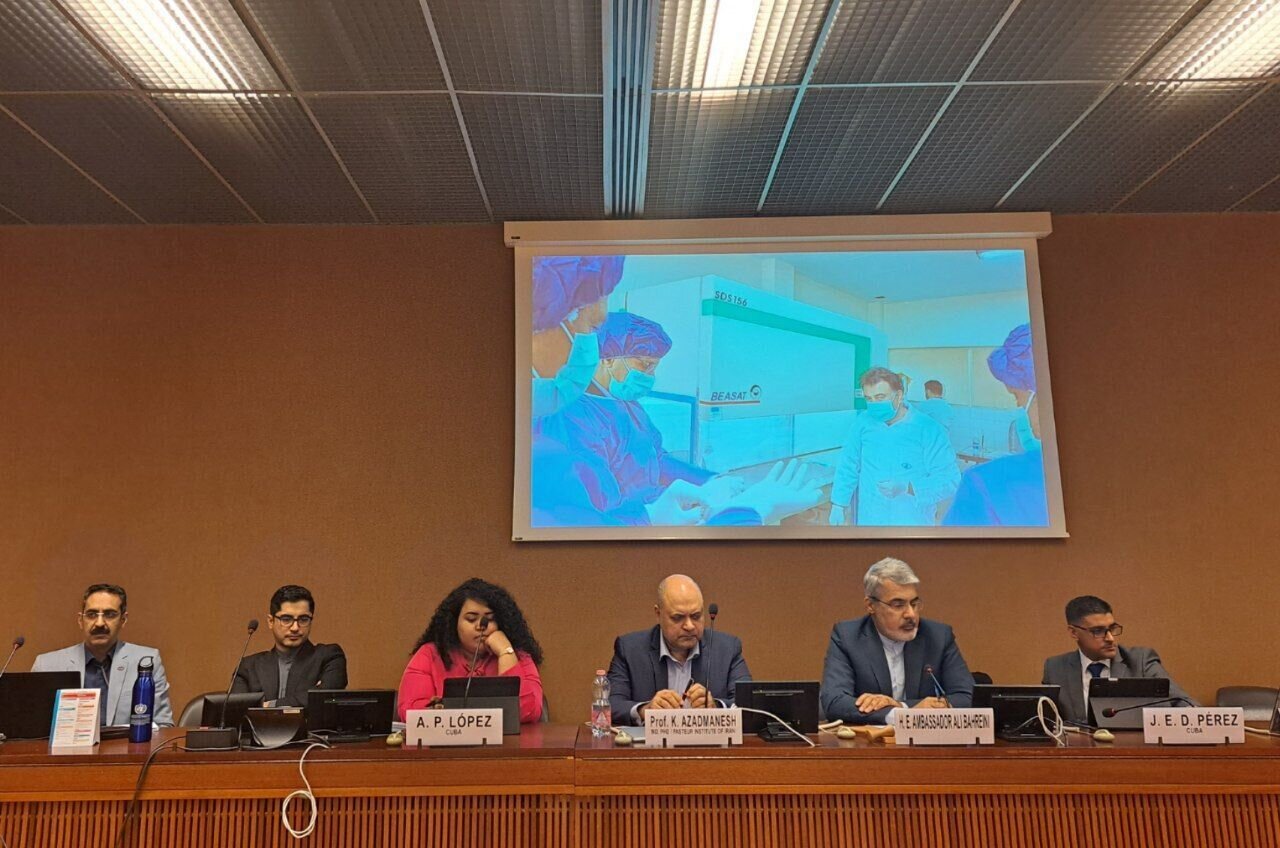Iran, Cuba discuss joint response to decry U.S. sanctions

TEHRAN- Representatives from Iran's Pasteur Institute and the Razi Vaccine and Serum Research Institute convened with their Cuban counterparts to address the impacts and challenges posed by the illegal unilateral sanctions imposed by the United States.
This discussion occurred during the fourth meeting of the working group on the strengthening of the Biological Weapons Convention (BTWC), held from August 19-23, 2024, in Geneva, Switzerland.
During the meeting, officials from the Razi and Pasteur Institute highlighted Iran's advancements in biological sciences and its collaborative efforts with nations such as Senegal, Mauritania, Mali, Uzbekistan, and Cuba in vaccine and serum production, as well as the organization of various training programs.
They also emphasized the difficulties Iran encounters in exercising its international rights due to the sanctions imposed by the United States on the Islamic Republic.
Kayhan Azadmanesh, head of virology research at the Pasteur Institute, shared insights into the 104-year legacy of the Pasteur Institute and its pivotal role in controlling and eradicating diseases such as smallpox, plague, tuberculosis, and COVID-19. He underscored the significance of scientific collaboration and vaccine production, particularly the partnership with Cuba in developing two recombinant vaccines for hepatitis B and COVID-19.
Azadmanesh highlighted the detrimental impact of sanctions on global health security and advocated for the establishment of mechanisms to promote scientific and health collaboration within the framework of the Biological and Toxin Weapons Convention (BTWC).
Also, Raynak Qaderi, a representative from the Razi Institute, emphasized the production of over 80 varied biological products, including vaccines for livestock, poultry, aquatic species, laboratory animals, and diagnostic kits.
Qaderi recognized the Islamic Republic as one of the leading nations in the eradication and management of numerous diseases in Iran and the surrounding region, such as bovine plague, polio, measles, and rubella.
The BTWC, an international treaty that prohibits the development and stockpiling of weapons of mass destruction, was enacted in March 1975 and has since been ratified by 187 countries.
Nevertheless, the United States undermines the rights of nations to engage in international cooperation and to leverage the advancements in biological sciences, as it imposes unlawful sanctions and disregards its international legal responsibilities in this area.
